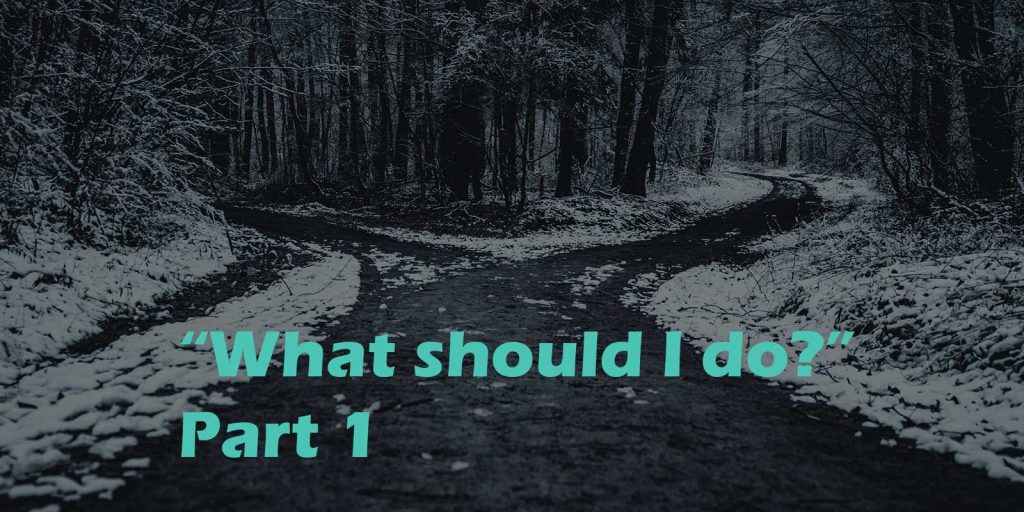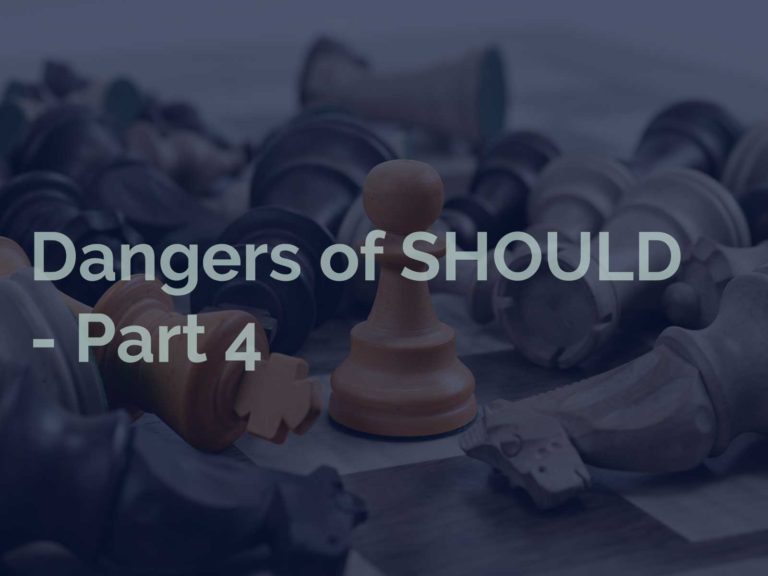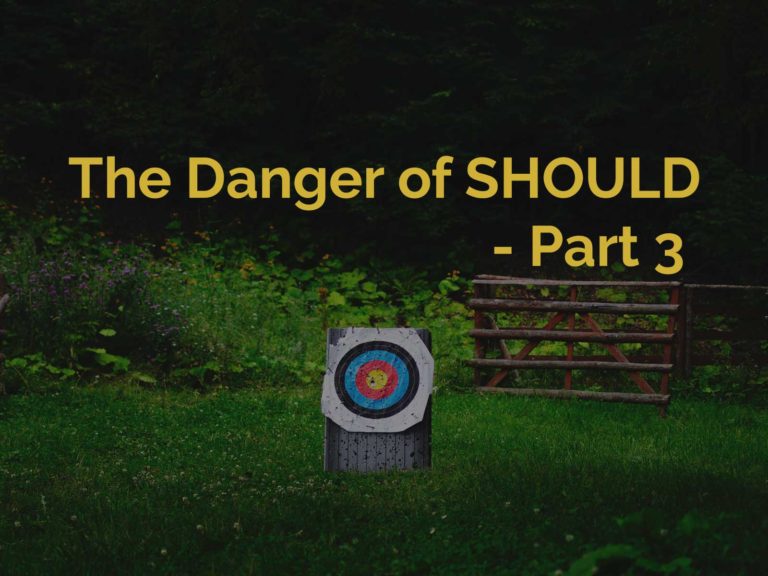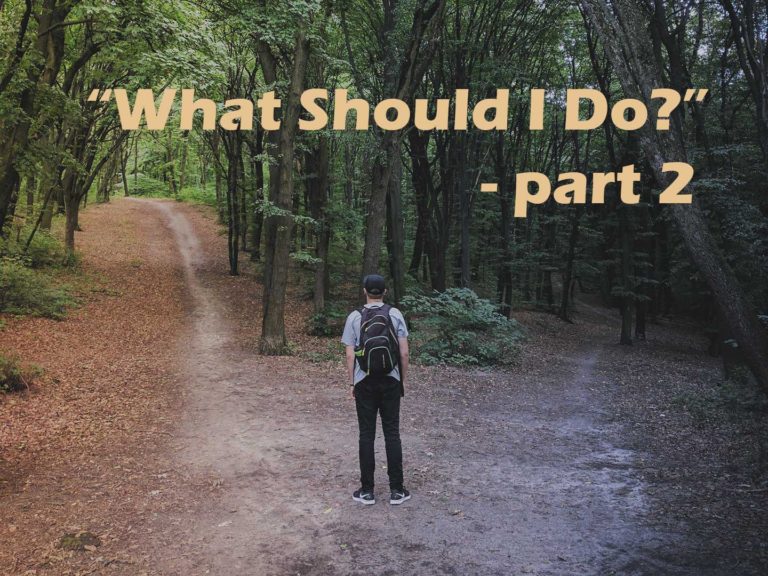
This is an interesting time we are living in. With the situation of the Covid-19 outbreak, we are now spending a lot more time physically isolated in our own homes. All these quiet time at home has given me ample opportunities to do a lot of self reflection.
One of the biggest realizations I got is that I have been living a life of “What should I do?”
I asked myself this question every time I come across a big decision and I have viewed this as a way to live responsibly.
However, it was only until recently that I have noticed the negative connotation that my usage of the word SHOULD can bring.
This is the first post of a 4-part series on the danger of the word SHOULD.
What SHOULD be the right choice?
When I asked myself the question “What should I do?”, I am actually asking myself “What is the one action that can lead to the best outcome?” Every time I asked the question, I have tasked myself to find the action or decision that would lead to the ultimate best results.
While the concept may sound logical, and has obviously served me in a lot of ways to get to where I am now, I realize that this way of thinking has actually caused me a lot of pain, frustration, and a lack of action.
“How so?” you may ask.
I think the best way to explain this is through one of my gaming experiences with the widely acclaimed game of the year in 2015/2016, The Witcher 3: Wild Hunt.
The Witcher series has been famous for its dark setting and moral-questioning choices that players have to make as they venture through the world in the shoes of the Witcher, Geralt. The outcome of these choices aren’t always clear. A seemingly simple act of kindness early on can lead to the slaughtering of an entire village much later.
Needless to say, this did not sit well with my compulsive need to reach the best outcome in every situation. So what did I do?
I started googling. Reading up on outcomes of decisions. I spent hours chasing threads after threads of discussions. Reading up on characters, their history, their back stories. At a certain point, I stopped playing the game and started reading up on The Witcher novels and short stories (which the game is based on) to get a better understanding of the implication of my decision. No exaggeration… I may have been over 10 hours mulling over one single plot line choice. I had a problem…
I was tumbling down a rabbit hole because I chose to believe that there is always one single best outcome in every fork in my paths. And I made it my responsibility to find out everything I possibly can for every situation before I act. I chose to let myself believe that anything less than the best is unacceptable.
This puts me in a scarcity mentality when dealing with choices by thinking that there is only one acceptable path and outcome in any situation. Which leads to a fear of making the wrong move. An immense fear that caused me to drop the game, put the decision on pause, and come back to the game months later.
Eventually I did give up my endless studying of the entire backstory of the world of the Witcher. Restarted the game from the beginning one last time, played and made decisions as best as I could with the information I had… with very minimal googling this time.
I was finally able to finish the game. And frankly, I enjoyed it so much more than the last play-through.
Luckily in this case, there is a happy ending because this game just sat on the shelf patiently waiting until I was ready to pick it back up. However, most of the real life opportunities will not do that. The act of not making a move at this time is a choice in itself. It is a choice to let the opportunities past us by.
How often have I let my fear of making the wrong move postpone or delay my success in real life?
What I have come to realize is that it is not possible to foresee the future and calculate the best action. This expectation has always slowed me down or caused me to take no action at all.
So instead of wasting time figuring out the best move, I have decided that I am better off using the time to make a bunch of good choices.


